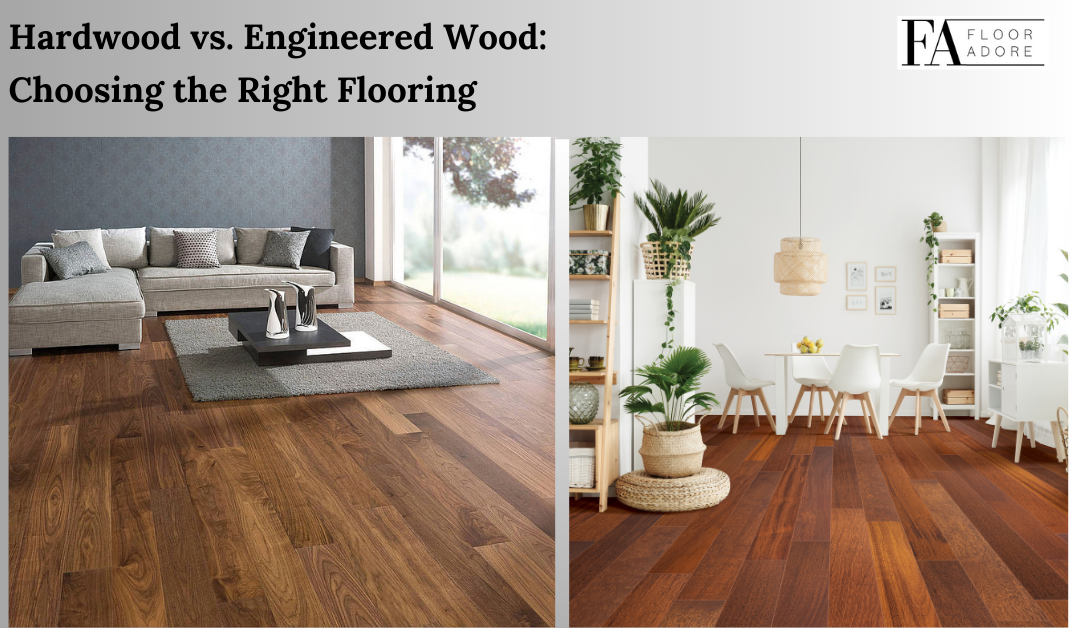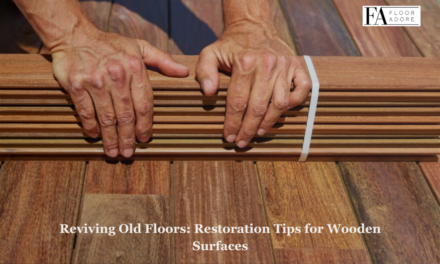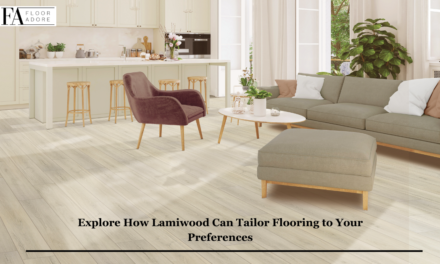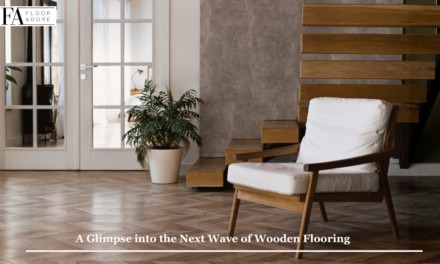When it comes to selecting flooring for your home, hardwood and engineered wood are two popular options that offer distinct advantages and considerations. Both types of flooring boast the natural beauty of wood while catering to different needs and preferences. Let’s compare hardwood and engineered wood flooring, helping you make an informed decision on which option is best suited for your space.
Understanding Hardwood Flooring
- Timeless Elegance and Durability: Hardwood flooring exudes timeless elegance and charm, making it a sought-after choice for homeowners seeking to add warmth and sophistication to their interiors. Hardwood floors are crafted from solid wood planks, typically sourced from hardwood trees such as oak, maple, cherry, or walnut. Solid hardwood is renowned for its durability and longevity, with properly maintained floors lasting for generations.
- Natural Variation and Beauty: One of the most appealing features of hardwood flooring is its natural variation in color, grain pattern, and texture. Each plank of hardwood is unique, showcasing the inherent beauty of the wood species from which it is derived. From the rich, warm tones of oak to the deep, luxurious hues of walnut, hardwood flooring offers endless possibilities for creating a personalized and inviting space.
- Refinishing Potential: Another advantage of hardwood flooring is its ability to be sanded and refinished multiple times, allowing homeowners to refresh the appearance of their floors and address surface damage such as scratches, dents, and wear. Refinishing can restore the original luster and beauty of hardwood floors, extending their lifespan and enhancing their value over time.
Exploring Engineered Wood Flooring
- Versatility and Stability: Engineered wood flooring is a versatile and innovative alternative to solid hardwood, particularly suitable for areas where moisture and temperature fluctuations are a concern. Engineered wood consists of multiple layers of wood veneer bonded together under heat and pressure, with a top layer of solid hardwood. This construction imparts greater stability and resistance to moisture compared to solid hardwood, making it suitable for installation in basements, kitchens, and bathrooms.
- Cost-Effectiveness: Engineered wood flooring often offers a more budget-friendly option compared to solid hardwood, making it an attractive choice for homeowners looking to achieve the look of hardwood on a tighter budget. While the top layer of solid hardwood adds to the cost of engineered wood, the lower layers are typically made from less expensive wood or plywood, resulting in a more affordable overall price point.
- Ease of Installation: Engineered wood flooring is designed for ease of installation, with options for glue-down, nail-down, or floating installations. The click-lock or tongue-and-groove installation systems allow for quick and efficient assembly, making engineered wood a popular choice for DIY enthusiasts and professional installers alike. Additionally, engineered wood can be installed over a variety of subfloor materials, including concrete, plywood, and existing flooring surfaces.
Choosing the Right Flooring for Your Space
When deciding between hardwood and engineered wood flooring, consider factors such as the location of the installation, your budget, lifestyle, and aesthetic preferences.
- For high-traffic areas: Hardwood flooring may be the preferred choice due to its durability and ability to be refinished. However, engineered wood can also be a suitable option, particularly in areas prone to moisture or temperature fluctuations.
- For basements or below-grade spaces: Engineered wood flooring is often recommended due to its resistance to moisture and potential for installation over concrete subfloors.
- For budget-conscious homeowners: Engineered wood flooring offers a cost-effective alternative to solid hardwood without compromising on style or quality.
- For those seeking natural beauty: Hardwood flooring showcases the inherent beauty and character of wood, with unique variations in color, grain, and texture that cannot be replicated by engineered wood.
Conclusion:
In conclusion, both hardwood and engineered wood flooring offer unique advantages and considerations, allowing homeowners to choose the option that best suits their needs and preferences. Whether you prefer the timeless elegance of solid hardwood or the versatility and stability of engineered wood, both types of flooring can enhance the beauty and comfort of your home for years to come. By weighing the factors outlined in this article and considering your specific requirements, you can make an informed decision on which type of wood flooring is right for your space.





